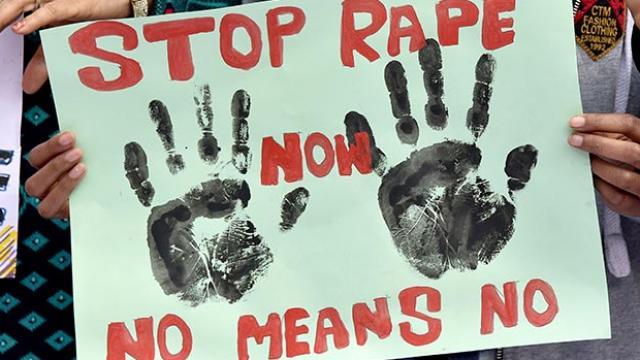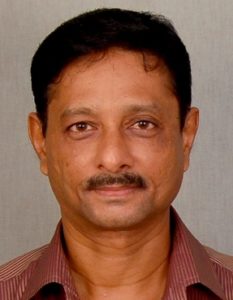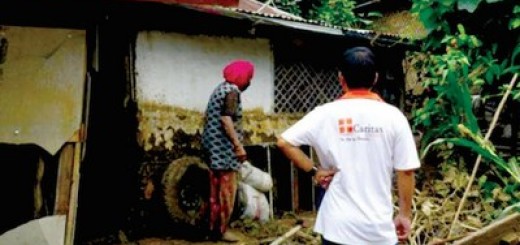Tech city shocked by gang rape, vigilante justice gets praise

Caption reads: STOP RAPE NOW, NO MEANS NO!
Matters India
31 December 2019
By Jeffrey Gettleman
The Criminal Law (Amendment) Act, 2013 (Nirbhaya Act)is an Indian legislation passed by the Lok Sabha on 19 March 2013, and by the Rajya Sabha on 21 March 2013, which provides for amendment of Indian Penal Code, Indian Evidence Act, and Code of Criminal Procedure, 1973 on laws related to sexual offences. The Bill received Presidential assent on 2 April 2013 and came into force from 3 April 2013.
Despite the law having been made more stringent than before, India is witnessing increased incidences of rape followed by the killing of the victim, with the intent of wiping out all evidence. It therefore means that the law is not acting as a deterrant and we need to devise better means to contain this menace. In this context, it is worth taking a look at the definition of rape and the punishment that comes with it.
What amounts to Rape under law?
A 'rape' charge under the Section 375 Indian Penal Code has two parts:
- non-consensual penetration of any orifice (vagina, anus, mouth, urethra) in a woman by a man, OR,
- non-consensual touching of any orifice with the mouth. This is not restricted to having sex. Forcing a woman to do this to herself, or with someone else, is also rape.
The court will decide that these acts are rape if:
- It happens without her consent, or
- She agrees, but only because she, or someone she knows is in danger, or
- She agrees, but because she thinks the accused person is her husband, or
- She agrees, but she is drugged, or drunk, or mentally ill, or
- She is under 18 – then it does not matter if she agreed or not, or
- She is in no position to indicate whether she agreed or not – for example, if she is unconscious.
Consent has been clearly defined as a clear, voluntary communication that the woman agrees to the specific sex act, leaving no room for debate.
What is aggravated rape?
Aggravated rape can be because of the special position of either the victim, or the criminal –
- rape by someone having authority and control over the victim because of their legal status (like police officers, public servants, armed forces personnel, jail staff);
- rape by someone who is in a position of trust with the victim (hospital staff, relatives or guardians, person in control or dominance);
- special nature of victim (pregnant woman knowing her to be pregnant, woman under 16 years, woman who cannot give consent, woman suffering from physical/mental disability);
- rape involving violent circumstances (during communal violence, causing grievous hurt/ disfiguration/ endangering victim's life, repeatedly raping same victim).
The punishment for committing such aggravated rape is rigorous imprisonment of between 10 years and life along with fine.
Another form of aggravated rape is rape which results in the death of the victim or in her ending up in a permanent vegetative state and gang rape.
Crime of rape and murder
During a rape, if the accused injures the woman so badly that that she dies, or goes into a vegetative state, he can be given the death sentence, or jail of 20 years – life.
While this provision is pretty clear, the law does not define what 'persistent vegetative state' means. In a Supreme Court decision, the Court said that a person who is alive but does not show any evidence of being aware of one's environment is in a permanent vegetative state.
Gang rape
If a woman is raped at the same time by a group of people, each of them will be punished for committing the crime (Section 376D IPC). The punishment is rigorous imprisonment of between 20 years and life imprisonment.
Repeat Offenders
The law (Section 376E IPC) allows the death sentence to be imposed where a person is convicted for a second time for:
- rape
- rape causing death or resulting in permanent vegetative state or
- gang rape.
(Source: Vikaspedia)
Against the background of the shocking rape and killing of a veterinarian, many are in favour of `Encounterlike' summary punishment of perpetrators, instead of long-drawn court cases, where they, especially the rich and powerful, get away. The action by the Cyberabad Police was hailed by many as the benchmark of justice for such heinous crimes. Kin of several victims of similar cases demanded "Hyderabad-like punishment/justice" for their accused. Now, due process of law is being looked at as a waste of time, which could be detrimental in ensuring fair judgment. The reason behind the mass celebration of the shooting was the swiftness with which the accused were "brought to justice", even as Nirbhaya's rapists are yet to be hanged. Nirbhaya was brutally gang raped, with an iron rod inserted in her private parts, on December 16, 2012. Her mother expressed happiness over the killing and criticised the "snail-paced" Indian judiciary for the delay.
Speaking on the incident, noted advocate Abha Singh said, "Hyderabad rape is the biggest low in the history of this country, as far as the safety of women is concerned. We did not learn from 2012, and despite our strong laws and death penalty provisions, crime has not been controlled."
The question therefore arises how to deter this increasing menace in a more comprehensive manner. Isaac Gomes, Asso. Editor, Church Citizens' Voice.
Hyderabad, Dec. 31, 2019: All day, every day, at a certain point along a highway leading out of Hyderabad, people stop their cars and get out to peer over the guardrail.
It was here, under a highway bridge, that four men torched the body of a young veterinarian after they gang-raped and suffocated her a few weeks ago in a case that horrified the country.
Nearby is another likely crime scene of note: In the green fields that gently roll away from the highway stands a ring of yellow police tape where the police gunned down the four accused men. The police say there was a shootout, and that they killed the men in self-defense. But that is now under investigation, and most people around here seem to believe it was a straight-up case of extrajudicial killing.
None of this happened in an isolated part of India or in some tough, broken place. It happened on the busy outskirts of one of India’s most up-and-coming cities: Hyderabad.
Apple. Google. Facebook. Uber. All have big offices in Hyderabad. So does Amazon, which this year opened its largest office building in the world right here, a futuristic campus with 15,000 employees.
The city, already a huge metropolis of around 10 million, is growing by leaps and bounds. It is famous for its spicy food, fancy shops, rich residents and good relations between Muslims and Hindus.
Many Muslims in Hyderabad have joined the protests sweeping the country over a separate issue — a divisive new citizenship law that many Indians feel discriminates against Muslims in this Hindu-majority nation.
But the scourge of gang rape is never far from people’s minds.
Most Hyderabadis seem to believe that the police officers shot the rape suspects in cold blood and then placed guns in their hands. Still, many said it was the right thing to do. One crowd even showered police officers in rose petals.
“It was the need of the hour,” said Akkineni Nagarjuna, a Hyderabad movie star. “Somebody had to put the fear of God in them.”
The shootings have uncapped a wave of vigilante violence against other rape suspects. One was nearly lynched a few days later on his way to court in Indore.
Many Indians are so fed up with the courts — and it’s not just that trials can drag on for years, but so often infamous criminals evade justice — that they crave swift and decisive punishment, however it comes.
“This is what I like about Hyderabad,” said Akash Chaturvedi, the sales manager at an exotic car dealership in the city. “People here are direct. They take action. They hit their targets.’’
“I meet 20 to 25 people a day: politicians, bureaucrats, big businessmen, celebrities,” he added, as he paused in front of a blue Lamborghini. “Not a single one is unhappy with the action that has taken place.”
Cities anywhere contain jarring contradictions: misery and success, crime and erudition, grit and glitz, all stacked on top of each other. This is especially true in Hyderabad, a fast-changing place in southern India that is striving to be included on the list of the country’s supercities, along with Delhi and Mumbai.
Centuries ago, Hyderabad was the seat of a vast Muslim kingdom that made a fortune from nearby diamond mines, producing some of history’s biggest gems, including the colossal 105.6 carat Koh-i-Noor, which British colonizers snatched.
Today, strong infrastructure and business friendly policies adopted by Hyderabadi officials have attracted so many cyber-based companies that an outlying part of the area is now called Cyberabad. This is where the bloodshed unfolded.
Adding to the suspicions of police foul play is that V.C. Sajjanar, Cyberabad’s police commissioner, was the supervising officer in at least two other cases of suspects killed by the police. In each incident, the officers said they acted in self-defense.
In this case, the police were under heavy pressure. After the news broke that the veterinarian had been raped and killed, protests erupted across India. Demonstrators demanded that the suspects be hanged.
The outcry was not as seismic as what followed after a young woman was gang raped and fatally brutalized on a moving bus in New Delhi in 2012, but the incidents presented disturbing parallels. In both, the young women were on professional tracks, and the weak link was having to rely on nighttime transport that left them vulnerable.
In the Delhi attack, a woman who was about to become a physiotherapist came out of a movie theater around 9:30 p.m. She needed a ride and accepted one from an off-duty bus with few passengers.
In Hyderabad, the 26-year-old veterinarian, whose name Indian officials have asked not to be disclosed, parked her motor scooter at a toll plaza outside of a central district around 6 p.m. on Nov. 27. She grabbed a shared taxi to a mall about 10 miles away, a common practice to spare drivers a grueling scooter ride.
But she was being watched.
The police said that four men who worked on a freight truck — Mohammed Arif, Shiva Kumar, Jollu Naveen Kumar and Chintakunta Chenna Keshavulu — deflated her scooter’s back tire right after she left. Then they fortified themselves with a couple bottles of cheap Imperial Blue whiskey, and waited.
India’s rates of sex crimes don’t appear higher than many other countries, including the United States. But activists say India has a particular gang rape problem.
Last year, for example, virtually the entire male staff at an upscale apartment complex in Chennai conspired to rape an 11-year-old disabled girl.
And some of the most widely publicized criminal cases in India have turned on rape and murder. Sexual violence experts say this is because many rapists feel that if they destroy the evidence, they will have a good chance of getting away with the crime.
“The problem in India is the failure of the criminal justice system,’’ said Sunitha Krishnan, who runs an anti-sexual trafficking organization in Hyderabad.
According to the police, the veterinarian came back from the mall at 9:30 p.m. and when the group of men offered to help her with her flat tire, she sensed danger. On her last phone call, to her sister, right before going with them, she said she was scared.
The men pulled her into a vacant lot. They raped her. She bled badly and fainted.
When she came to, Mr. Arif, the ringleader, according to the police, decided to kill her, smothering her with his hands.
he four dragged her body into their truck and drove off to the stretch of fields and highway where they set her on fire.
The police were able to use closed-circuit video footage to identify the truck, which led them to the suspects, and all four confessed, the police said.
They were in custody on Dec. 6 when the officers took them out of jail and back to the crime scene, at 3 a.m. The police said that they needed the men to re-enact the crime, and that two of the suspects grabbed officers’ guns, provoking a shootout.
Several legal activists in Delhi have filed lawsuits against the police, saying the shooting amounted to a summary execution. And the families of two of the suspects said that they were minors.
But you would struggle to find any others in Hyderabad willing to take the dead men’s side.
“Justice is good,’ said Minhaj Obaid, who works in a call center for Dell computers, as he stood on the highway bridge.
“And instant justice,’’ he said, smiling, “is even better.”
















